Organization Profiles
Cockrell School of Engineering
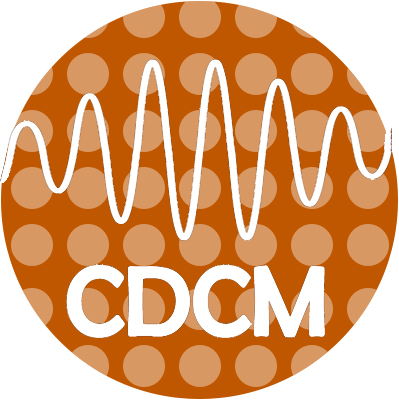
The Center for Dynamics and Control of Materials: an NSF MRSEC seeks to extend the traditional paradigm of materials research beyond the study of behavior in or near equilibrium to encompass the understanding and control of materials over extended temporal and spatial scales. The Center supports research on nanocomposite materials that combine inorganic and organic components, with applications in energy storage and filtration membranes, and on approaches for exploiting light to achieve dynamic, quantum control of materials. Through the concept of a Materials Community of Practice, the Center integrates interdisciplinary materials research with initiatives in education, outreach, and the promotion of diversity. The Center involves elementary school teachers in materials research to improve teacher efficacy and student engagement with science at a formative age. Outreach to the public via hands-on demonstrations and collaborations between artists and materials researchers brings materials science and technology to new audiences who might not otherwise be engaged. And partnerships with industry and the entrepreneurial community provide participants with experiences and connections to prepare them for success in a broad range of careers.
- Accepting Volunteers or Collaboration with: Undergraduate Students, Graduate Students, Faculty
- Open to supporting faculty broader impacts research
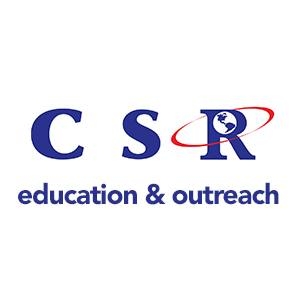
CSR Education and Outreach offers educational workshops and activities at CSR that are available for the full range of students and educators — from K-12 lesson resources and teacher training in standards-based STEM (Science, Technology, Engineering, and Math) education to both summer and full-time, undergraduate and graduate student research.
- Accepting Volunteers or Collaboration with: Undergraduate Students, Graduate Students, Faculty, Staff
- Open to supporting faculty broader impacts research
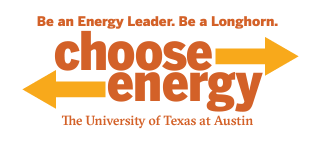
The Choose Energy K–12 outreach program impacts student awareness of society’s energy needs, energy careers, and programs of study in the Hildebrand Department by providing diverse opportunities for Texas secondary STEM teachers.
• Professional Development: Teachers can enhance their knowledge of petroleum and geosystems engineering and gain insights into how energy careers benefit society through our continuing education programs.
• Outreach Events: Teachers can engage with our faculty, alumni, and outreach partners from both industry and regulatory sectors at a variety of events.
• Student Tours: Teachers can arrange a customized visit to the Hildebrand Department for their students.
• Classroom Resources: Teachers can easily integrate the Choose Energy outreach team’s free, standards-aligned energy and environmental content into their existing curricula.
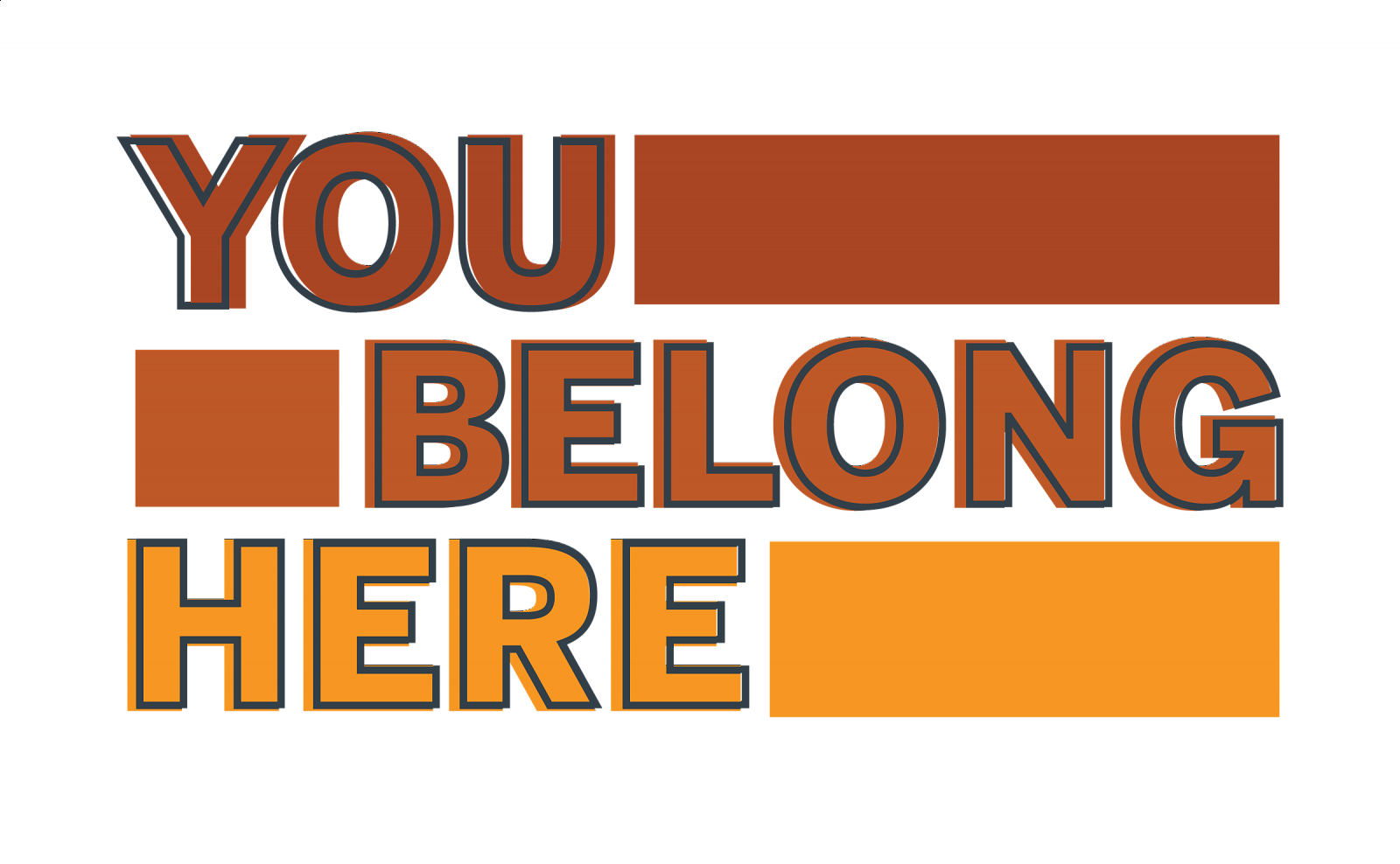
To inspire future generations to consider careers in engineering, the Cockrell School of Engineering hosts events and educational programs for K-12 students and teachers. From the annual Girl Day, featuring hands-on STEM activities that provide thousands of elementary and middle school students with their first glimpse of engineering at work, to our summer programs for building engineering interest in middle and high school students, we are working to ensure that every aspiring engineer has an opportunity to pursue an engineering path.
In addition to the programs below, Cockrell School hosts on-site visits from schools and classes, connects faculty and student ambassadors with teachers and classes and can provide information for K-12 teachers to share in their classrooms.
- Accepting Volunteers or Collaboration with: Undergraduate Students, Graduate Students, Faculty, Staff
- Open to supporting faculty broader impacts research

Engineer Your World (EYW) is transforming how engineering is taught in high schools across the United States and beyond. Developed by a team at The University of Texas with support from the National Science Foundation, EYW offers an innovative and comprehensive high school engineering curriculum with a dual-enrollment option, along with exceptional professional development and ongoing teacher support. EYW courses are design-based, team-based, inquiry-focused, and engage students in integrated engineering design, computational thinking, and 21st century skills.
- Accepting Volunteers or Collaboration with: Undergraduate Students, Graduate Students, Faculty
- Open to supporting faculty broader impacts research
The Nuclear Science and Research Reactor (NSRR) outreach program at the Nuclear Engineering Teaching Laboratory at the University of Texas at Austin aims to promote nuclear science and engineering among members of the local community and general public.
By providing outreach activities, our goals are to bolster STEM (science, technology, education, and math) education among K-12 populations, regional colleges and universities, promote knowledge of research and career pathways in nuclear science and engineering, and educate the community of the field’s social impact. Ultimately this program hopes to inspire new generations of nuclear scientists and engineers.
- Accepting Volunteers or Collaboration with: Undergraduate Students, Graduate Students, Faculty, Staff
- Open to supporting faculty broader impacts research
College of Fine Arts
Driven by critical thinking, fueled by creativity and craft, and obsessed with emerging technologies — our future-forward program is designed for the ambitious.
College of Natural Sciences

The Charles A. Dana Center at The University of Texas at Austin develops and scales mathematics and science education innovations to support educators, administrators, and policymakers in creating seamless transitions throughout the K–16 system for all students, especially those who historically have been underserved. We focus on strategies for improving student engagement, motivation, persistence, and achievement.
We believe in small-community experiences and unmatched opportunities at scale. UT Austin’s largest college is also one of the biggest science schools in the nation. We are home to 15 programs for undergraduate and graduate students ranked in the top 10 nationally. Our campus and community offer many opportunities for the public to engage with science, from visiting us on site to participating in citizen science projects.
- Accepting Volunteers or Collaboration with: Undergraduate Students, Graduate Students, Faculty
Nutritional science is the study of processes by which living organisms take in food for the maintenance of life and growth. The study of nutrition is relevant to everyone, and our department encourages inclusivity and diversity. The ultimate goal of nutrition education and research is to improve the quality of life for all individuals by minimizing disease and maximizing longevity through optimal nutrition.
The Department includes a strong foundation in several primary areas of excellence in transdisciplinary nutrition research, including Nutrition and Cancer, Obesity and Metabolism, Maternal and Child Health, and Nutrigenomics/metabolomics. The Department has a unique niche on the UT campus as a bridging health science discipline, and the faculty includes scientists with expertise in a range of biomedical-related areas of study, including nutritional science, metabolism, immunology, molecular biology, genetics, epidemiology, clinical nutrition, and biochemistry.
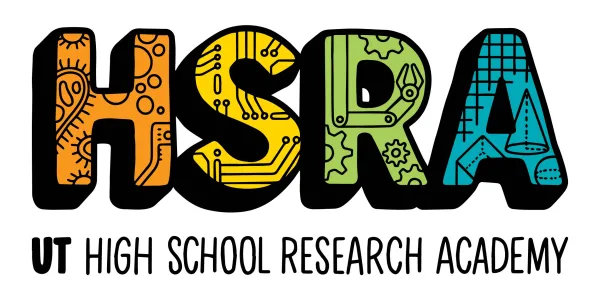
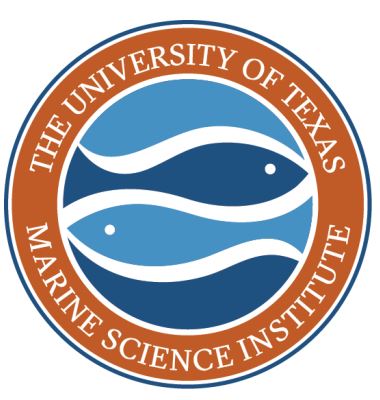
The University of Texas at Austin Marine Science Institute is the oldest and most significant marine research facility on the Texas coast. We are changing our understanding of the world's oceans and coasts and educating a global population dependent on the ocean ecosystem. What began humbly in 1941 as a small, rough-lumber shack on the shores of the Gulf of Mexico in Port Aransas is now home to cutting-edge research, education, and outreach programs.
- Accepting Volunteers or Collaboration with: Undergraduate Students, Graduate Students, Faculty
- Open to supporting faculty broader impacts research

The Mathematics Teachers' Circle of Austin (MTCA) is a professional learning community that brings together middle and high school mathematics teachers and professional mathematicians to collaborate and learn from each other.
Our goal is to help middle school and high school mathematics teachers confidently incorporate open-ended, authentic mathematical problem-solving into their teaching. We hold monthly problem-solving sessions during the school year and summer workshops. MTCA sessions are free to all math teachers in the Austin area. We validate campus parking and provide dinner, and participants earn two CPE hours for each session.
- Accepting Volunteers or Collaboration with: Graduate Students, Faculty
- Open to supporting faculty broader impacts research

- Accepting Volunteers or Collaboration with: Undergraduate Students, Graduate Students, Faculty
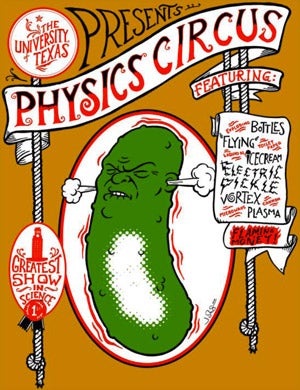
The Physics Circus is a local traveling science show encompassing what we believe to be some of the most important results from classical physics. We aim to show kids some of the cool things you can do with your knowledge of science, which you can't normally see in a classroom.
In roughly an hour of thrilling demonstrations, we cover heat, motion, states of matter, properties of air, and electricity. This is a fun event for students of all ages as well as for parents and teachers.
- Accepting Volunteers or Collaboration with: Graduate Students
Jackson School of Geosciences
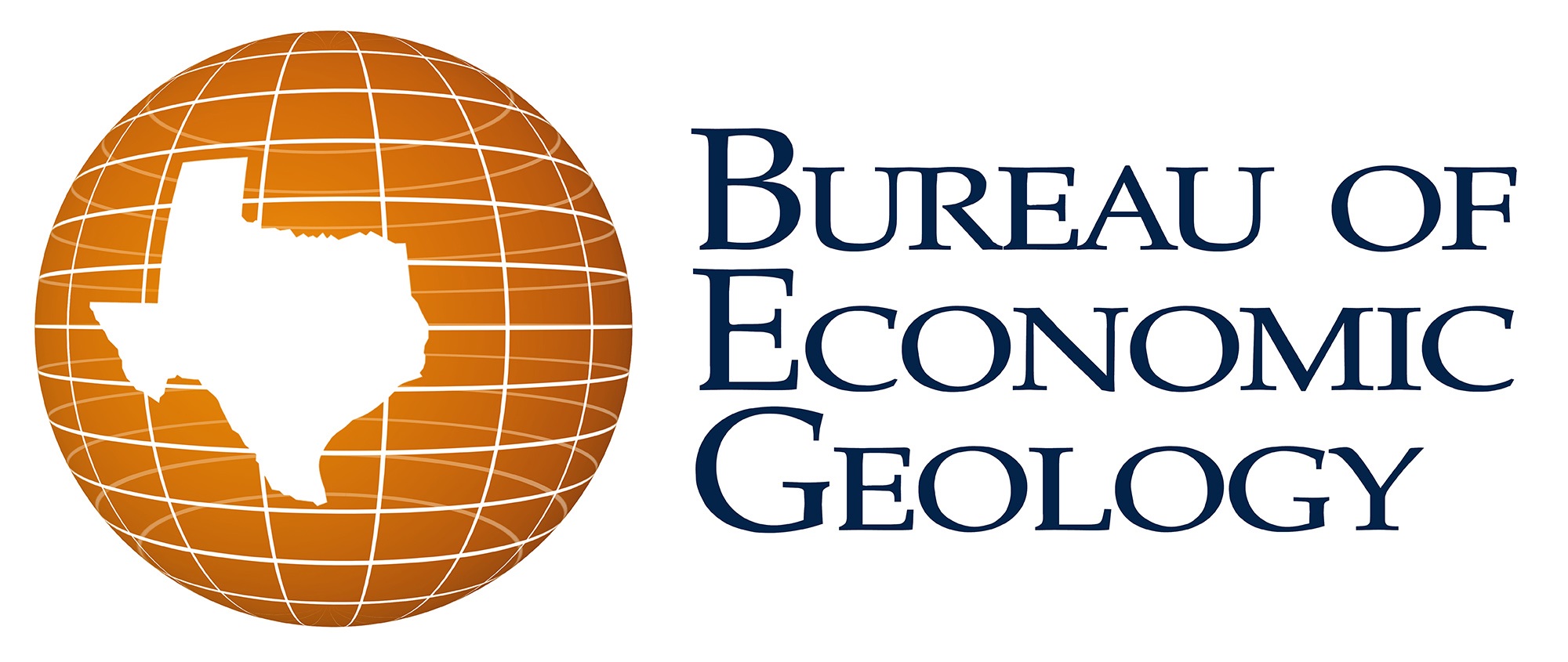
Established in 1909, the Bureau of Economic Geology is the oldest research unit of The University of Texas. The Bureau is the State Geological Survey of Texas and has been an integral part of the development of the state’s economic success through the years. Our mission is to serve society by conducting objective, impactful, and integrated geoscience research on relevant energy, environmental, and economic issues. Our vision is to be a trusted scientific voice to academia, industry, government, and the public, whom we serve.
- Open to supporting faculty broader impacts research
The Environmental Science Institute (ESI) Hot Science – Cool Talks (HSCT) brings leading science, technology, engineering, and math professionals and their research to the community! Talks are offered six times a year and feature STEM role models and science communicators. Before each talk, attendees can participate in engaging hands-on STEM activities and demonstrations related to the themes of the talks. The events are free but registration is required.
- Accepting Volunteers or Collaboration with: Undergraduate Students, Graduate Students, Faculty
- Open to supporting faculty broader impacts research
Founded in 2005, GeoFORCE Texas is the flagship diversity outreach program of The University of Texas at Austin Jackson School of Geosciences. This unique, 4-year high school program, earned the Presidential Award for Excellence in Science, Mathematics and Engineering Mentoring (PAESMEM) in 2019 for its innovative approach to broadening participation for diverse students in science, technology, engineering and math (STEM). GeoFORCE introduces students to field learning experiences each summer, visiting geologically significant sites across the country. Elements of mentorship, education, and exploration are weaved throughout summer academies to help cultivate interest and support student development. As a result, student participants from underserved areas in Texas find a path to college and rewarding careers as geoscientists, engineers, and other STEM-related professions. GeoFORCE provides students with tools, confidence, and motivation to succeed as future industry leaders.
- Accepting Volunteers or Collaboration with: Undergraduate Students, Graduate Students, Faculty
- Open to supporting faculty broader impacts research
Research Centers and Institutes

TACC'S Education & Outreach team expands understanding and appreciation of the value of high performance computing and the career opportunities available in Science, Technology, Engineering, and Mathematics (STEM) fields, particularly among historically underrepresented populations.
- Accepting Volunteers or Collaboration with: Undergraduate Students, Graduate Students, Faculty, Staff
- Open to supporting faculty broader impacts research

WeTeach_CS educates, empowers, and inspires K-12 CS teachers, administrators, professional development providers, and university instructors to realize the vision of computer science for all. The Expanding Pathways in Computing (EPIC) group at The University of Texas at Austin's Texas Advanced Computing Center (TACC) serves as the backbone organization for the WeTeach_CS collective impact network which serves hundreds of districts, schools, and educators in Texas and across the nation. WeTeach_CS is dedicated to broadening participation in computing for every student regardless of race, gender, income, or location and leverages the TACC's internationally recognized computing expertise to guide strategic improvement in computing education at a state and national level.
- Open to supporting faculty broader impacts research
School of Nursing

The Longhorn Summer Nursing Immersion Camp is back! We invite high school students aged 14 - 17 years who are interested in nursing or other healthcare majors to join us for a week of learning and fun. Attending camp will increase your knowledge and understanding for a variety of nursing careers and roles within healthcare.
For questions about the camp, contact our team at nursingcamp@austin.utexas.edu.
- Accepting Volunteers or Collaboration with: Undergraduate Students, Graduate Students, Faculty, Staff
University of Texas at Austin
OnRamps prepares students and teachers for advance academic success through K12 and higher education partnerships that deliver high school dual enrollment courses and professional development. OnRamps provides students with access to college experiences and helps them build skills necessary to excel in college and the workplace. Additionally, students have an opportunity to earn college credit from OnRamps’ many course offerings in science, technology, and mathematics. OnRamps also offers Instructors yearlong researched-based professional learning and development with a focus on deepening course content knowledge and instructional approaches to help students learn in and outside of the classroom.

What starts here changes the world. What starts here can be a new idea in the mind of a single student. What starts here can be a work of art that enriches lives or a discovery that saves them. What starts here can be a new way of doing things, a new perspective on a global challenge. What starts here changes the world.

Women in STEM (WiSTEM) is broadening participation in STEM by creating an inspired and curious community of confident STEM leaders.
We’re not just about science, technology, engineering, and math—we’re about unleashing the power of curiosity. Imagine a vibrant community where inspired minds collide, where STEM leaders emerge with confidence and passion.
Our Mission: To ignite the spark in every student, regardless of gender, and propel them toward STEM greatness. From pre-college to undergraduates, we’re here to fuel your STEM journey.
WiSTEM’s university-wide outreach, recruiting and retention STEM programs for precollege and undergraduate STEM students are designed to increase STEM identity, self-efficacy, and a sense of belonging and lead to increased undergraduate retention/persistence, graduation rates, advancement to graduate school, and persistence in the STEM workforce.
- Accepting Volunteers or Collaboration with: Undergraduate Students, Graduate Students, Faculty, Staff
- Open to supporting faculty broader impacts research
